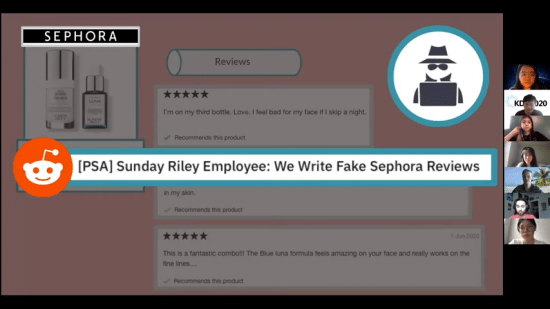Spam Spotting: Using AI Tools to Educate and Improve Online Decision-Making

Students on Summer Project Team:
Rui Chen 'G, Special Education program, College of Education
Jack Curtis '22, Psychology / Computer Science
Diana Garcia '21, Psychology
Jennifer Liu '23, Computer Science
Griffin Reichert '21, Computer Science / Economics
Yifan Zhang '22, Computer Science
Faculty Mentor(s): Sihong Xie, Assistant Professor, Computer Science & Engineering; Qiong Fu, Professor of Practice, College of Education
Project Video: Click here to view
Project description:
On websites like Amazon and TripAdvisor, fake reviews (“spams”) are prevalent. Stories about spams and their victims have been reported widely; these spams overturn product and service reputations and adversely affect users’ decision making. To protect the general public, AI-based spam detectors have been employed to actively flag the spams. Also, more sophisticated users may use their judgments to spot spams. However, AI detectors are not always accurate and transparent, and will not be much trusted and adopted by the general public for fighting spams (“algorithm aversion”). Further, without training, even sophisticated users have difficulty in distinguishing spams from genuine reviews. This project worked towards an education-based defense against spams, where the general public will be educated to acquire the skills to spot spams, and to trust and properly rely on AI detectors to improve their protection. Our summer scope of work was 1) develop surveys and questionnaires to understand the scope of the challenges; 2) code a role-playing game where a spammer can craft spams for the spotters to catch, both for fun and for research; 3) code a simple tutoring tool to teach human to use AI spam detectors.


